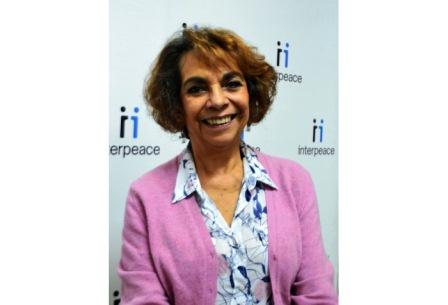New applications for Interpeace’s methodology to develop public policies

Interpeace’s consensus building approach has been successfully implemented in the peacebuilding field for nearly two decades. The Participatory Action Research methodology (PAR) enables a large number of stakeholders to take an active part in processes of change and to develop consensus-based solutions.
Developing public policies in different sectors
The numerous possibilities the Interpeace approach offers are increasingly being recognized by actors beyond the peacebuilding field. This has for instance led to a partnership with the Union for International Cancer Control (UICC) on the issue of cervical cancer prevention in Guatemala. “We are very excited that Interpeace’s Participatory Action Research approach will be adapted to facilitate synergies within the Guatemalan health sector,” shares Bernardo Arévalo de León, Deputy Director-General for Research and Development at Interpeace. “This approach will help to bring various actors together to develop the National Cervical Cancer Control Plan.”
Bernardo goes on to explain: “Currently, there is marked commitment in Guatemala to the prevention of cervical cancer. However, there are many actors working on the issue and their efforts are dispersed. The UICC is therefore bringing these actors together under a shared strategy and has teamed up with Interpeace to facilitate the process.”
How it works
Mariel Aguilar Sanchez has been selected to oversee the adaptation of the Interpeace methodology to the cervical cancer control dialogue process and its transfer to the UICC’s initiative. Adding to her background in dialogue, mediation and negotiations, she will be trained in Interpeace’s approach to consensus building. Mariel will be the ‘Liron Mehrez-Melnik Fellow’. The Liron Mehrez-Melnik Fellowship was established in memory of Interpeace colleague who was Programme Coordinator for Israel, and who passed away last year due to cancer.
Mariel tells us: “When I first heard about this initiative, I was immediately inspired. I am looking forward to working with Interpeace and UICC and implementing this innovative approach.” The participative methodology will not only help reach consensus on a unified policy for cervical cancer control, but it will also help to create a sense of community among the previously dispersed actors of the health sector.
Looking ahead
In addition to facilitating the development of a national plan for the control of cervical cancer, this partnership is also a cornerstone for the transfer of skills and techniques to various actors. This is just one example of the broad scope of the Interpeace methodology and of its potential for bringing together different stakeholders to develop solutions for collective impact.
